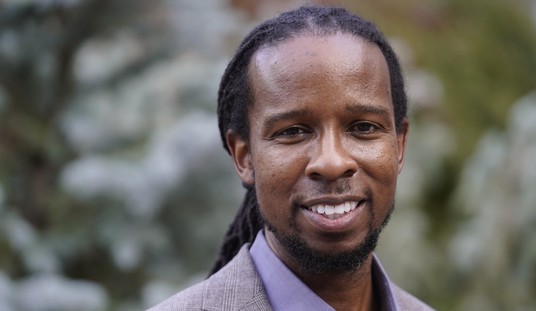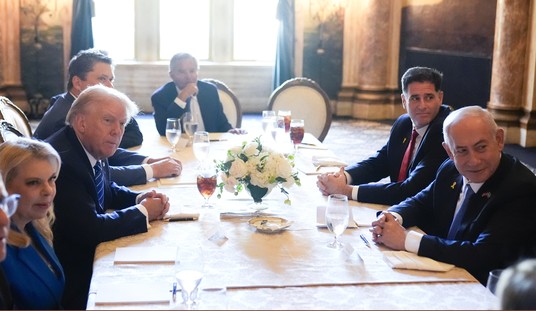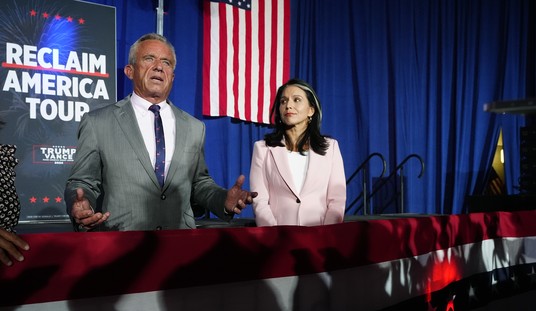In many ways the most dangerous aspect of the rationale Moscow has laid out for its intervention is what might be called “the Putin doctrine,” which is that it has the right to intervene to “protect” Russian populations wherever they may be. It used that rationale in its war against Georgia in 2008. And since there are large Russian populations in the Baltics, which are NATO members, that’s a red flag right there that has to be a red line…
“Putin has two guiding principles,” Daalder told The Daily Beast. “First, he has a zero sum view of the world, which is that anything that is not mine is yours.” The whole Western European notion of mutual security is, from his point of view, almost incomprehensible or, perhaps worse, contemptible.
And secondly, says Daalder, “we should take Putin at his word that he believes the dissolution of the Soviet Union was the greatest tragedy of the 20th century.” Step by step, as relentlessly as the Czars of the 18th and 19th centuries or the Soviet rulers of the 20th, he is trying to reconstruct the Russian Empire.
To the naked eye it may seem that Putin is winning this round hands down. We doubt that he thinks so. He has overreached twice, and the second gamble is still undecided. In most of Ukraine he is hated and opposed. It is a mark of his miscalculation that he had to create his own rebellion there rather than being able to take advantage of a genuine domestic resistance to the Kiev revolutionary regime. None of his present choices are ideal: To intervene further in Ukraine in order to threaten Kiev risks getting bogged down in a prolonged guerrilla war. To sit tight in Crimea illegally could — assuming the Western will — soon degenerate into an endless crisis between East and West at some unknown cost to Russia in trade and financial sanctions. And to withdraw under cover of diplomacy would be seen as a humiliation. The world’s resigned but quick acceptance of a lightning coup — for which he must have hoped — doesn’t seem to be in the cards…
This specific violation poses a special problem for two groups. The first is the signatories of the Budapest declaration, which include the U.S. and Britain, because they are on record as guaranteeing Crimea’s status as part of Ukraine. Ukraine may not be a NATO member entitled to the protection of Article 5, but it has exactly the same claim on these two Western powers as if it were. They can’t simply shuffle off this crisis onto the U.N.; it is their direct responsibility. Any U.S. or U.K. statesman who fails to fulfill that obligation is hereafter forbidden to criticize Neville Chamberlain. The second group is those European theorists — notably Sir Robert Cooper, who argued the point capably and seriously a decade ago in The Breaking of Nations — who assert that Europe has moved into a postmodern Kantian world governed by a network of overlapping law rather than by power politics. For the moment, this crisis seems to be challenging those theories; but that may change. How the European Union responds to this crisis will tell us a great deal about the kind of international order that we will be living in as the 21st century unfolds.
All of this adds up to a highly charged and assertive messianic ideology. If Putin took it all literally, he’d be a Russian ayatollah. Up until now, he hasn’t taken it literally. His regime has used this nationalism to mobilize public opinion and to explain itself to itself. But it has tamped down every time this nationalistic ideology threatens to upend the status quo.
The danger is that Russia is now involved in a dispute in Ukraine that touches and activates the very core of this touchy messianism. The tiger of quasi-religious nationalism, which Putin has been riding, may now take control. That would make it very hard for Putin to stop in this conflict where rational calculus would tell him to stop. Up until now, we have not been in a Huntingtonian conflict of civilizations with Russia. But with passions aroused and philosophic zealotry at full boil, it may temporarily appear that we are.
The implication for Western policymakers is that we may not be dealing with a “normal” regime, which can be manipulated by economic and diplomatic carrots and sticks. Threatening to take away inclusion in the Group of 8 or freeze some assets may become irrelevant because the Russian regime will have moved up to a different level. The Russian nation may be motivated by a deep, creedal ideology that has been wafting through the culture for centuries and has now found an unlikely, cynical and cold-eyed host.
The choice here could not be more stark. Keep your nukes and keep your land. Give up your nukes and get raped. This will be the second time that Obama administration policy has taught the rest of the world that nuclear weapons are important things to have. The Great Loon of Libya gave up his nuclear program and the west, as other leaders see it, came in and wasted him.
It is almost unimaginable after these two powerful demonstrations of the importance of nuclear weapons that a country like Iran will give up its nuclear ambitions. Its heavily armed, Shiite-persecuting neighbor Pakistan has a hefty nuclear arsenal and Pakistan’s links with Iran’s nemesis and arch-rival Saudi Arabia grow closer with every passing day. What piece of paper could Obama possibly sign—especially given that his successor is almost certainly going to be more hawkish—that would replace the security that Iran can derive from nuclear weapons? North Korea would be foolish not to make the same calculation, and a number of other countries will study Ukraine’s fate and draw the obvious conclusions…
The specter of Jimmy Carter, temporarily but not permanently banished by the successful raid on Bin Laden, is what has haunted this president’s foreign policy from the beginning. President Obama’s mix of Wilsonian aspirations and Jeffersonian caution is closer to Jimmy Carter’s basic worldview than to that of any other modern president. So far, President Obama and his team have managed to fend off the specter of Carterization, mostly by managing events more successfully than the Carter team could do, but also because American power in the world today is much greater than it was in the Carter years and we enjoy a larger margin of error.
The Obama administration is now being challenged, and not only in Crimea. Both friends and foes around the world (and in the United States) increasingly see a Georgia peanut farmer when they look towards the Oval Office. If President Obama allows that impression to become irremovably fixed, he and the nation he leads have some ugly times ahead.
“A lot has about the administration’s foreign policy in recent weeks and especially recent days, and a lot of it has been critical of the president,” Wagner began. “And I’m sort of the camp that, you know, I’m not sure if the president could have done anything to prevent Vladimir Putin from doing what he was going to do, but it puts the White House in a position where their foreign policy seems incredibly reactive and has so, for almost the recent past, I mean, years at this point.”
“We know, through rhetoric, that the president has wanted to pivot to Asia, but events beyond his control have forced him to look to the Middle East and to Eastern Europe,” she continued. “And one gets sense, perhaps his heart has never been in it, he hasn’t truly organized or articulated a foreign policy the way that he perhaps would if it was another region of the world.”
Putin is in the former group. He watched as he got his way with Georgia, Syria, and Iran, and also on missile defense installations in Poland and the Czech Republic; he further observes the U.S. doing little in response to China’s saber rattling in the East China Sea. He has seen that by the exercise of power (through others or his own) the West shows weakness and so he can enhance Russia’s interests — as he defines them. And he does not define them by being on the right side of history, being a member in good standing of the G-8, or being spoken well of in diplomatic circles. He certainly does not define them by being a good partner in the global effort to thwart climate change. He’s been rebuilding the prestige and power of Russia since before he became president the first time and for the last five years he’s been able to do that quite vigorously with muscle and might and intimidation…
How is it that the president, a smart man, and his advisors, also smart, have been so wrong about Putin, the Iranian mullahs, the Muslim Brotherhood, the Syrian dictator, and others? Because they want to believe that the realist view where power and anarchy reign is wrong and that the idealist view of cooperation and international law is right. No amount of facts on the ground has dissuaded them of this belief until, one hopes, now.
Singh’s point about the process shortcomings underscores that this is not just about Ukraine. It is also not just about process or, in the end, about the president. More importantly, this is about a message that has gone out to the world — to Putin and Venezuelan President Nicolás Maduro and Kim Jong Un and Karzai and other despots and troublemakers. They know that for whatever reason — whether recent history, or the personality of leaders, or bad process, or the aftershocks of economic crisis, or mismanagement — that since World War II the one nation that has been most depended on to push back on those posing a threat to the global peace is less likely to do so today — by only degrees perhaps but palpably nonetheless — than at any time during that period. And these despots, being who they are and the human nature of bullies and thugs and opportunists being what it is, are taking advantage.
Perhaps this Ukraine crisis will be the one that helps elevate this president, his team, and the processes upon which they rely to be better prepared, to have better options prepared beforehand, to better know the difference between empty gestures and meaningful leverage, to be more decisive, to personally engage with allies more effectively, to make faltering alliances work better, to know not just where we will step back but also where we must step forward. It is still evolving. Perhaps, the president and his team are simply evaluating and planning and will come up with the bold strokes needed to stop baldfaced aggression like that which has taken place in Crimea.








Join the conversation as a VIP Member